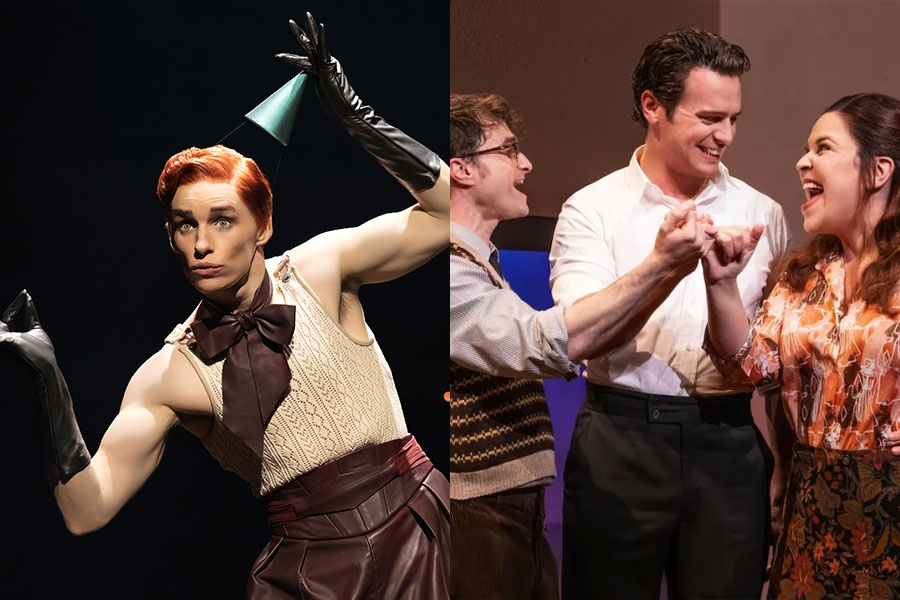Swallows & Amazons
Times have changed since the publication of Arthur Ransome’s Swallows and Amazons in 1930. You’d be hard pressed to find a parent happy to send four children between the ages of 12 and seven off in a boat to spend a few days alone on an island in the middle of a lake on their own now, for instance.
What hasn’t changed at all, however, is the spirit that the story and its sequels captured: children may play safely indoors these days but the power of adventure and imagination is as strong as it’s always been. The brilliance of director Tom Morris‘s musical theatre adaptation of the book, now playing in the West End in advance of a national tour, is that it puts that imagination centre stage.
Integral to this process is Robert Innes Hopkins‘ lovely design, which calls upon the cast to magic into existence the physical contexts for the adventures that take place. Swallow, the boat in which the Walker children set sail, is suggested by a prow, a mast and a sail. The lake they cross to reach the Island where they plan to make camp is summoned up by fluttering blue ribbons made to flicker around the stage as Swallow tacks to and fro. Plenty of this business is played for laughs by the supporting cast, but this only adds to the fun. We feel as if we’re being invited to play along and this slight taste of pantomime feels entirely suitable to the time of year.
The playful staging – its style reminiscent of War Horse, the show for which Morris recently won a Tony Award for Best Direction – is a delight, but begins to lose its charm with repetition. Combined with some laboured storytelling and a couple of unremarkable songs at the top of act two, this makes for a second half that almost loses its way. Fortunately, thanks to a wonderfully dynamic staging of the attack that the Swallows and their new friends the Amazons together launch on Captain Flint’s houseboat, the show regains its earlier magic and finishes on a high note.
Stewart Wright as seven-year-old Roger Walker and Katie Moore as his older sister Susan carry the show: Wright with countless moments of perfectly gauged physical comedy, Moore with her ‘mother-said-we-mustn’t’ prissiness. This character might have been irritating in lesser hands, but Moore’s Susan is a reassuring presence in the show and a nice contrast to the high energy of Wright’s Roger and Akiya Henry‘s Titty.
The only characters who fail to achieve the right tone are the Amazons, who’ve been pitched too modern for the period context. Sophie Waller and Celia Adams, playing the Blackett sisters, Peggy and Nancy, are a very able pair (Waller’s rich singing voice in particular is a real pleasure to listen to), but it is impossible to imagine these two in the late 1920s. This is partly down to Morris, but is also to do with writer Helen Edmundson‘s script, which, despite its accomplished storytelling and strong character development, doesn’t always quite ring true to the period in which Ransome’s story is set.
Divine Comedy frontman Neil Hannon‘s score – his first foray into writing for theatre – is less memorable than it might be but there’s real heart to some of these songs and, as you’d expect, plenty of assured lyric writing. The Amazons have undoubtedly been given the best melodies of the show, the wildness of these local Lake District dwellers emphasised by minor keys and jaunty rhythms that make the Swallows’ songs feel tame by comparison.
Bringing a classic of children’s literature to the stage – balancing the needs of those familiar with a story with those new to it – is no easy task. But by honouring the heart of Ransome’s 80-year-old story and staging this piece with a light hand on the tiller, Morris succeeds in charming all who sail in her.










